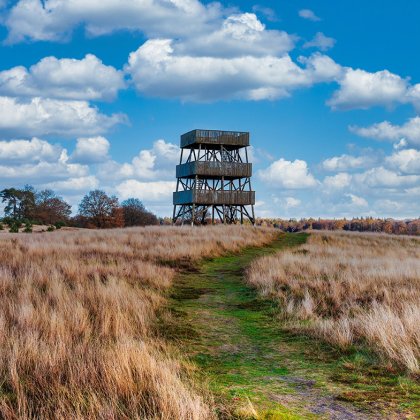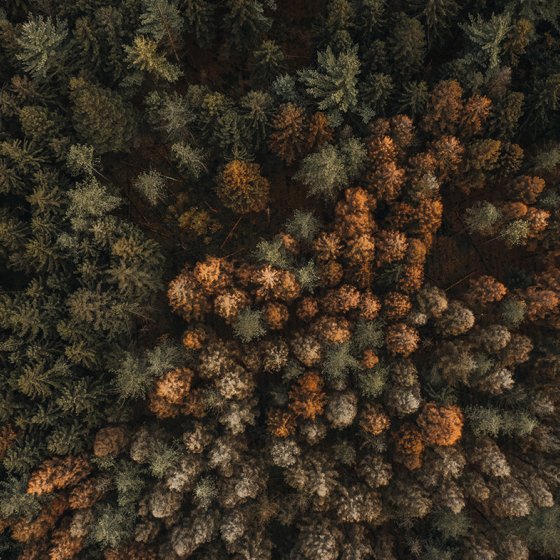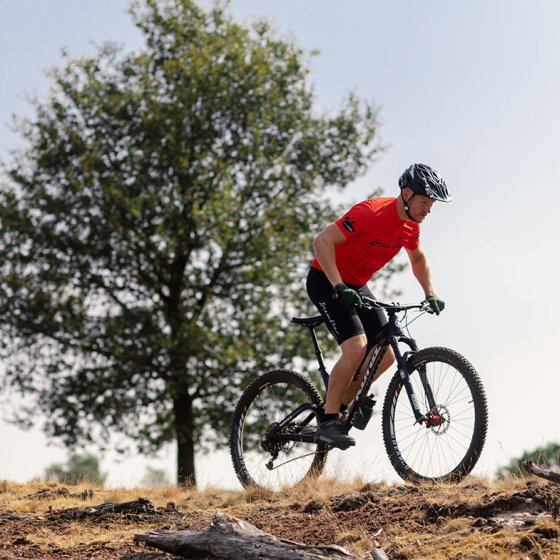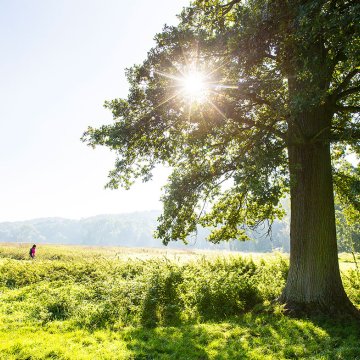
Drents-Friese Wold National Park
Varied landscape

The Drents-Friese Wold is characterised by a variety of landscapes. You can enjoy the National Park on horseback, on foot or by bike. In Aekingerzand also known as the Kale (bald) Dunes, weather and wind have free rein and create a dynamic landscape. The purpose-built watchtowers offer great views of the drifting sand area and the (wet) heathland.
The forests consist largely of conifers such as Norway spruce, Douglas fir and Scots pine, with rare plant species such as creeping lady's-tresses orchids and interrupted club moss in some parts.
Home to special animals
The animals found in the Drents-Friese Wold National Park are just as diverse as the plants. Within a relatively small area, you will encounter forest, meadow and marsh birds. There are also mammals in abundance such as roe deer, hares, rabbits, hedgehogs, squirrels, ermines, polecats and even the rare pine marten. Reptile lovers won’t be left out either. The park is home to the adder and the viviparous lizard and, more rarely, the smooth snake and grass snake. With a bit of luck you might get to see moor and green frogs, but also some salamander species such as the small newt and great crested newt.
To prevent the Drents-Friese Wold from becoming overgrown, a herd of Sayaguesa cattle graze a large part of the nature reserve. Many plant and animal species benefit from this grazing. The largest of the park’s inhabitants can be found in the southwestern corner of the reserve, which is home to the Highland cattle. Moving from the home of the largest inhabitants to that of some of the smallest, the Doldersummerveld is a unique area within the Drents-Friese Wold. It was designated as the first butterfly reserve in the Netherlands by the Dutch Butterfly Foundation and you can spot rare butterflies such as the grayling and the Alcon Blue.
Recreation in the Drents-Friese Wold

The Drents-Friese Wold has a multitude of walking, cycling and horse-riding trails that enable you to explore its stunning scenery. ATB routes have also been set out for people who enjoy more rugged terrain. Combine your stay in the countryside with a visit to cities such as Assen, Leeuwarden, Groningen or Sneek or the charming village of Giethoorn. There are plenty of campsites, holiday bungalows, group accommodations, hotels and guesthouses in the vicinity of the Drents-Friese Wold.
